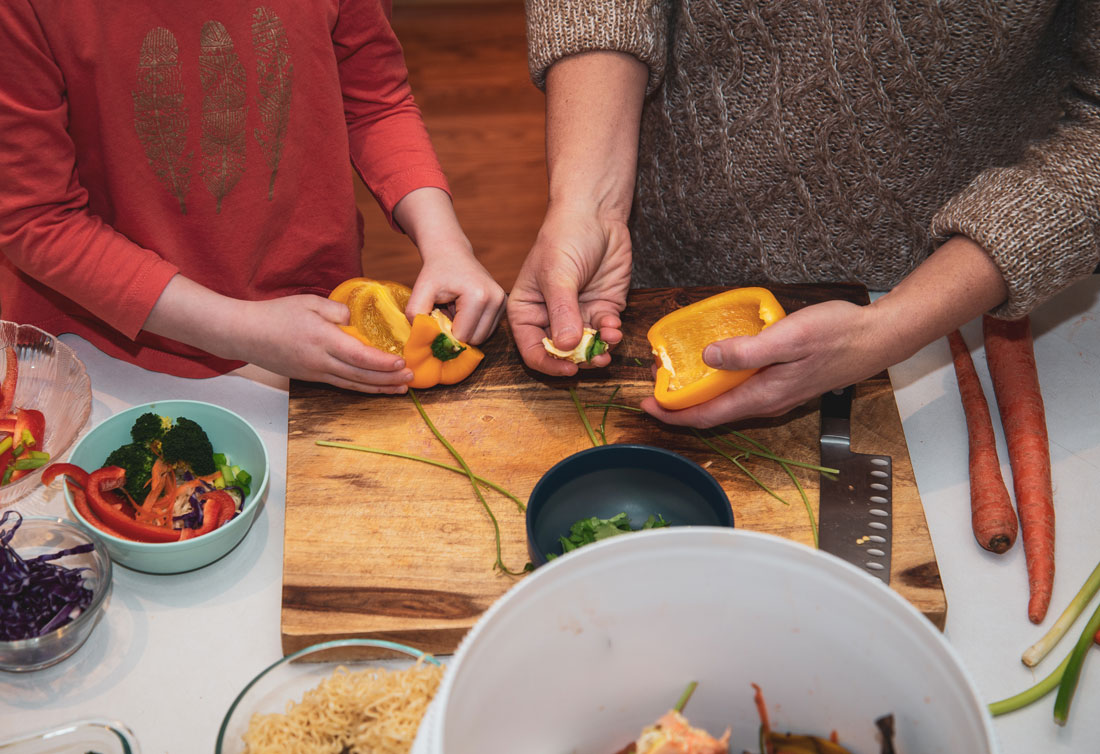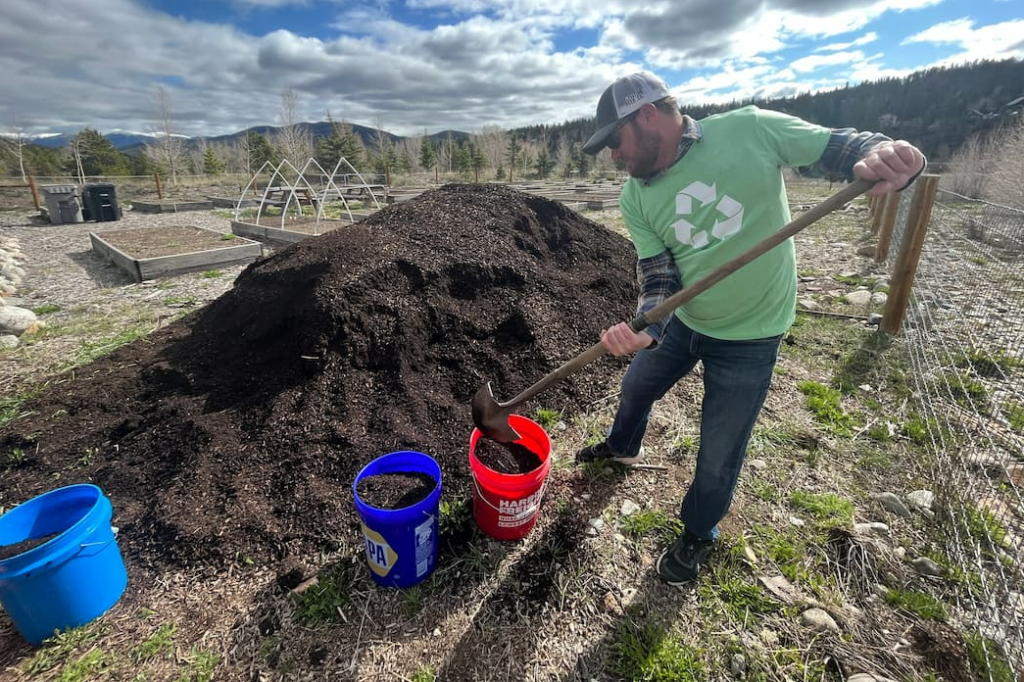
- High Country Conservation
- June 12, 2025
- Uncategorized
Dear Eartha, I know composting is good for our environment. But outside of making soil healthier for plants, what’s the real deal with composting? How does it actually benefit the community?
Great question! Composting has been around for ages—literally. Early humans figured out that decomposed organic matter could give their soil a boost, and farming communities across the globe have been using natural fertilizers for centuries. Some stumbled upon it by accident, others learned by watching nature do its thing. Fast forward a few thousand years, and the magic is still going strong: turning food scraps into nutrient-rich compost that feeds healthy, thriving soil. And really—who doesn’t love some good, happy dirt?
Composting in Summit County: It’s Free and Easy! Here in Summit County, the High Country Conservation Center (HC3) has teamed up with the Summit County Resource Allocation Park (SCRAP) to run a FREE food scrap recycling program. You can drop off your food scraps at one of eight public drop-off locations around the county, open 24/7. The county collects, hauls, and processes these scraps and voila – High Country Compost is born and sold back to the community. Why Composting is a Game Changer Compost is like a superhero for your soil. It’s a natural soil amendment that packs a punch by improving both the chemical and physical properties of soil. What does that mean for your plants? More nutrients, more air, more water, and healthier growth. This helps reduce the need for chemical fertilizers and pesticides, meaning your garden thrives without the extra junk.

But Wait, There’s More!
- Waste Reduction – In the U.S., a staggering 30 to 40 percent of our food supply goes uneaten—wasting not just the food itself, but all the water, energy, and resources it took to produce it. Even worse? Food waste is the number one material filling up our landfills and fueling incinerators across the country. The more food scraps we compost, the less room we take up in the landfill. In 2025 alone, the food scrap program in Summit County diverted over 395,000 pounds of food waste. That’s a whole lot of garbage space saved!
- Climate Change? Composting Helps! –Here’s a hot tip: When food waste ends up in a landfill, it doesn’t just harmlessly disappear. Instead, it gets buried under layers of trash where there’s little to no oxygen. In that low-oxygen environment, food waste breaks down and produces methane—a greenhouse gas that’s more potent than carbon dioxide. Yikes. But when you compost that same food waste instead? You give it a chance to break down in an oxygen-rich environment where methane isn’t produced. Instead, you get nutrient-rich compost that helps grow healthy plants, improve soil, and even capture carbon. So yeah—more composting means less methane, healthier soil, and a major win for the climate.
- Resilient Landscapes – Compost isn’t just for gardens. It’s also a champion for the environment! Compost improves soil structure, helps prevent erosion, and conserves water by holding it in the ground where it’s needed. Plus, it’s a stormwater management hero, filtering out pollutants near roads and wetlands. CDOT even uses High Country Compost for revegetation projects along highways. Talk about a local win!
- Job Creation – Let’s not forget that composting creates jobs. From logistics to hauling to processing at SCRAP, this program keeps people employed right here in Summit County. Plus, by making compost locally, we reduce the need to ship it in from far away – keeping the process green all around.
So, Why Does It Matter?
Composting is one of those simple actions that delivers big results—right here in Summit County. It’s a win for our beautiful mountain environment, a boost for local jobs, and a major benefit for our high-elevation soil. Thanks to programs like HC3’s free Food Scrap Drop-Off, composting is easier than ever. Your participation keeps food waste out of the landfill, cuts greenhouse gas emissions, and turns leftovers into something our gardens and forests actually need. It’s a natural fit for our community—because protecting this place we love is just part of who we are. And as we face the challenges ahead, composting is something we’ll keep doing to build a stronger, more resilient future in Summit County.
Ask Eartha Steward is written by the staff at High Country Conservation Center, a nonprofit dedicated to waste reduction and resource conservation. Got a question for Eartha? Send it to info@highcountryconservation.org.
